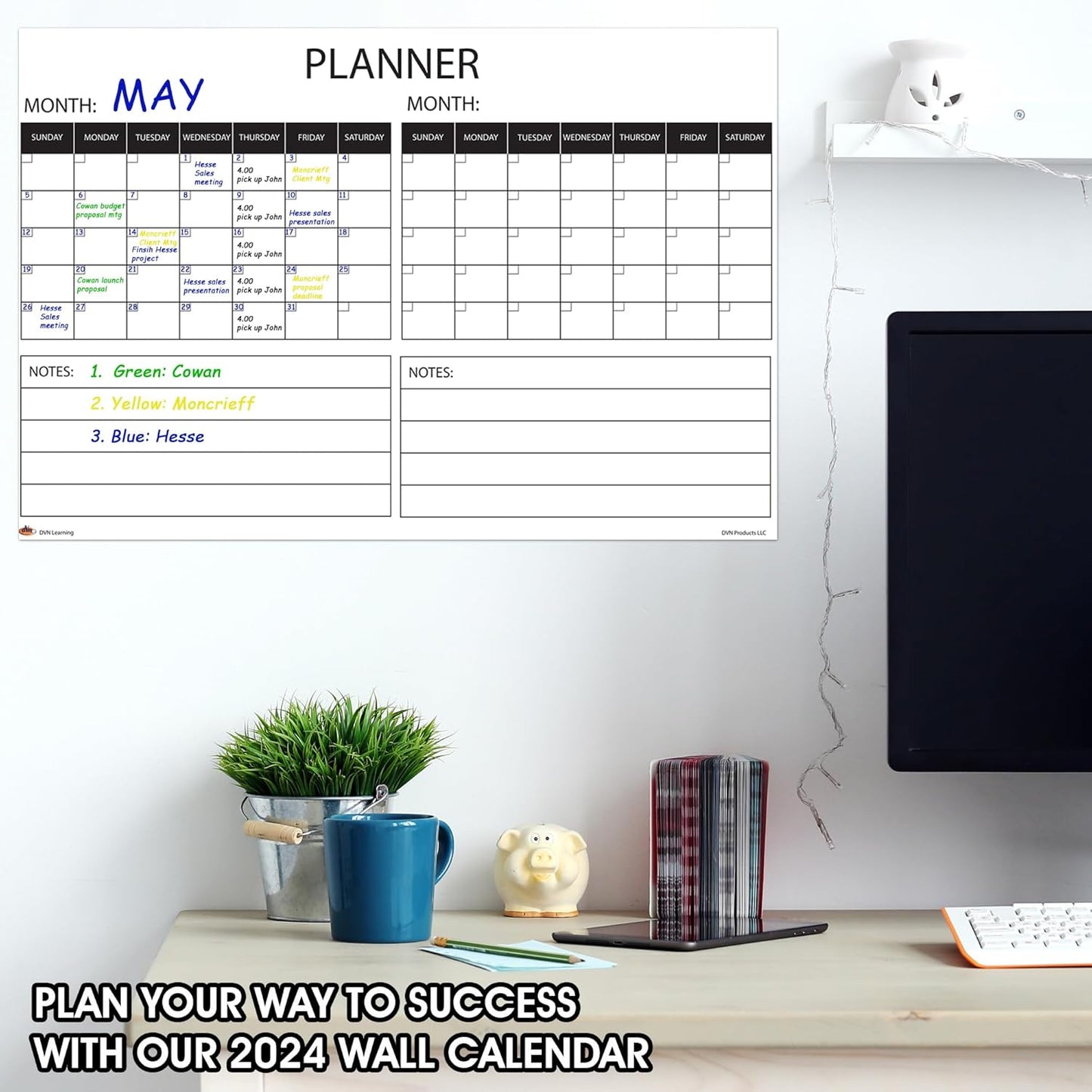The Large Two-Month Wet & Dry Erase Wall Planner (36" x 24") is an effective example of low-cost assistive technology, specifically designed to support individuals with disabilities facing organisational challenges. This product aligns with the objectives of the National Disability Insurance Scheme (NDIS) by providing a clear, durable, and accessible solution for managing schedules and daily tasks.
Clear Visual Organisation Aid:
The planner's large format (36" x 24") provides ample, uncluttered space, making it easier for individuals with visual processing difficulties, fine motor challenges, or memory impairments to view, read, and write down appointments, tasks, and reminders. The clear two-month layout offers a persistent visual overview of upcoming commitments.
Promotes Independence and Routine Management:
By offering a central, highly visible place to track schedules, therapy appointments, support worker visits, and daily routines, the planner empowers users to manage their time more independently. This reduces reliance on prompts from caregivers or support workers, fostering greater autonomy in daily living skills.
Enhances Planning and Executive Function Skills:
For individuals with challenges related to executive functions (such as planning, sequencing, and working memory), this planner serves as a crucial external cognitive aid. The two-month view supports forward planning, while the act of physically writing and reviewing schedules helps reinforce memory and organisational strategies.
Flexible and Durable for Ongoing Use:
The wet and dry erase compatibility allows for easy updates and corrections as schedules change, reducing potential frustration and making the tool highly practical. The laminated surface ensures durability for long-term, repeated use, representing excellent value as a sustainable organisational support.
The Large Two-Month Wall Planner exemplifies how simple, low-cost assistive technology can significantly support NDIS participants. Its features directly address common disability-related barriers to organisation, promoting independence, enhancing daily living skills, and aligning with the NDIS mission to improve the quality of life for individuals with disabilities.







